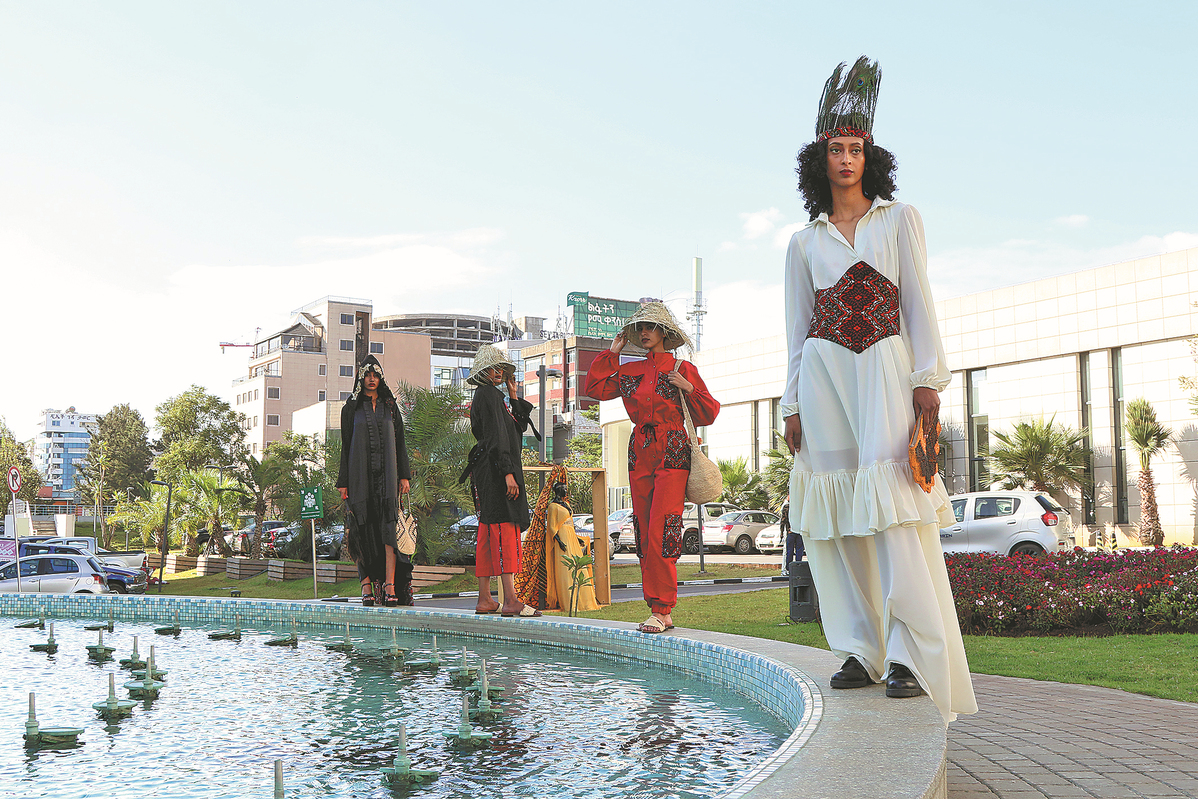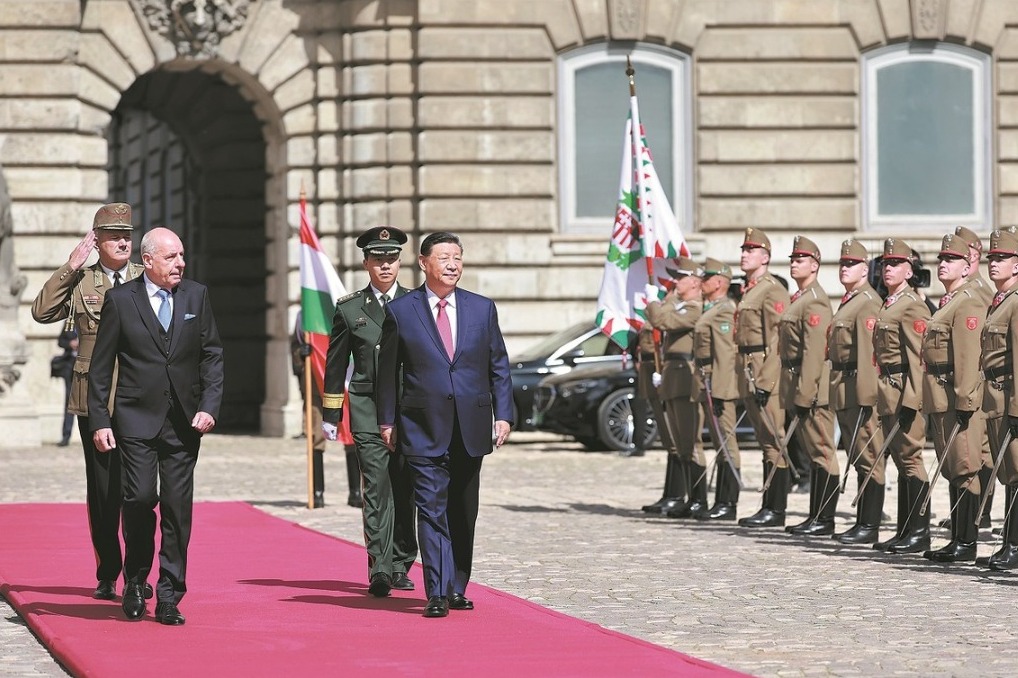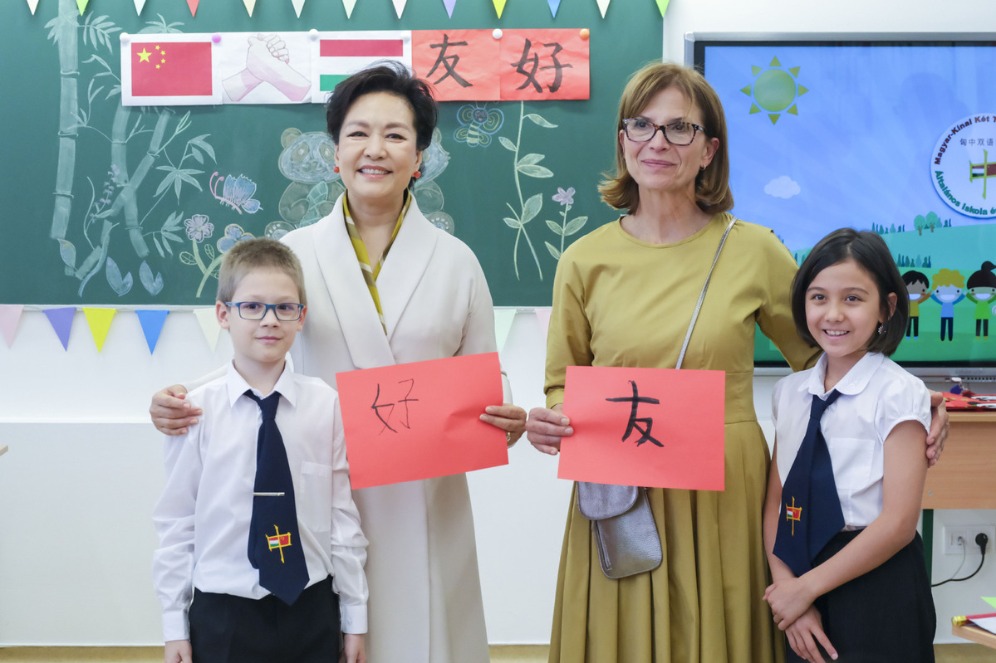Africa poised to shape future of global fashion
Despite several challenges facing the industry, continent has several unique factors that may propel it to success
By Otiato Opali in Addis Ababa, Ethiopia | China Daily | Updated: 2023-11-25 08:52

Ducks in a row
Despite her admiration of Ethiopia's leather industry, some fashion week participants felt that Ethiopia and Africa at large need to get their ducks in a row if they are to reap the full benefits that the fashion industry has to offer.
Mishamo Wakaso, CEO of Ethiopia's leather research and development center under the Ministry of Trade and Industry, said leather processing in Africa has grown in the last decade with marked improvement in the quality of products like footwear, leather bags and glove making. Ethiopia is the fifth-largest exporter of leather and leather products in Africa, with exports valued at around $140 million.
However, Wakaso said the main challenge facing Africa's leather industry is supply. Africa has a huge livestock population from where it sources animal skins, but access to chemicals, accessories and components used to treat the skins is a problem.
"Most of the leather processing chemicals used in Africa are imported from China, India and Europe. This has created a big demand with a huge shortage on the continent," Wakaso said.
For Africa to claim its spot in the global fashion world, Wakaso said African governments need to invest in the industry to improve the quality of products.
Despite the teething problems, he believes that African fashion can grow exponentially, especially if the continent looked within itself for a market among its 1 billion population.
"To minimize these challenges as Africa, we have to integrate and create market integration. We are exporting to India or Europe, but we are not utilizing the ample huge market in Africa due to the trade barriers we have," he said. "We have to fix the African Continental Free Trade Agreement because this will attract investors. For example, a chemical manufacturing company can establish its factory in Ethiopia and trade with Kenya, Sudan, Tanzania and other African countries."
Africa is a major producer of raw materials for the fashion industry, with 37 out of 54 countries producing cotton, and textile exports from the continent average $15.5 billion a year, Wakaso said.
Mbugua said African governments have to assume a bigger role to facilitate local trade in the textile and leather industries by creating the necessary infrastructure in addition to the integration of markets.
"Through the facilitation of free movement of people, African governments can make it easy for you to move from one country to the other. We still have challenges of movement and visa closures between countries, but I am looking forward to positive changes. I am excited about the fact that Rwanda has done away with visa requirements for Africans and Kenya has promised to do so by December," Mbugua said.
Mbugua said events like the Ethiopian fashion week are an opportunity for African industry players to create networks and collaborate at the continental level.
"Through such meetings, we look forward to being able to grow ourselves, build East Africa and Africa because now there is such great opportunity. We would love to have African fashion week chapters within Africa and then grow our businesses because the purpose is supporting our members to grow ourselves to access markets and make sure that we are competitive in unity," she said.
The lack of access to the African market by African fashion players can be seen in the fact that Africa's textile imports, including clothing and footwear, are valued at $23.1 billion annually, almost double the value of exports, according to the UNESCO report.
"African countries are increasingly organizing trade shows, bringing together sector players, and promoting shared partnerships. The Africa Sourcing and Fashion Week is one such example," the report said.
Nato said events like the Africa Sourcing and Fashion Week are an opportunity for the world to experience the best from Africa.
"The unique aspect of African fashion is authenticity and originality. If you check most fashion houses elsewhere in the world, they have done so much that they have less creativity in what they are putting out now. Africa, on the other hand, is rich in fabric, we are huge cotton growers and we are rich in every single way. That's our fashion. If the world would focus on us, I think we are the next big thing," said Nato, who has her own luxury label Nato Design House.
























